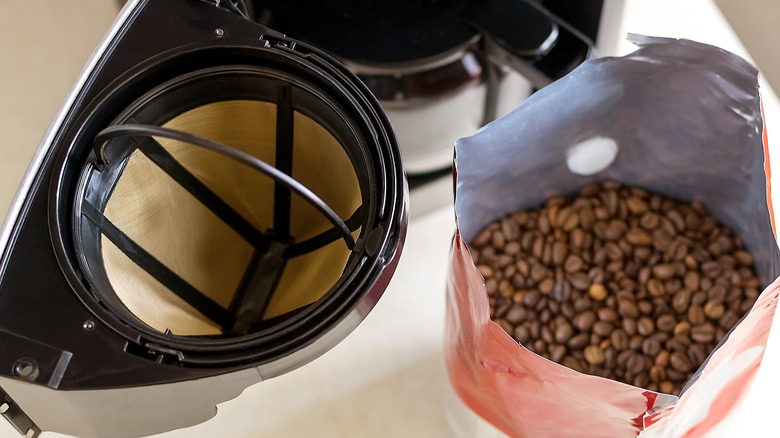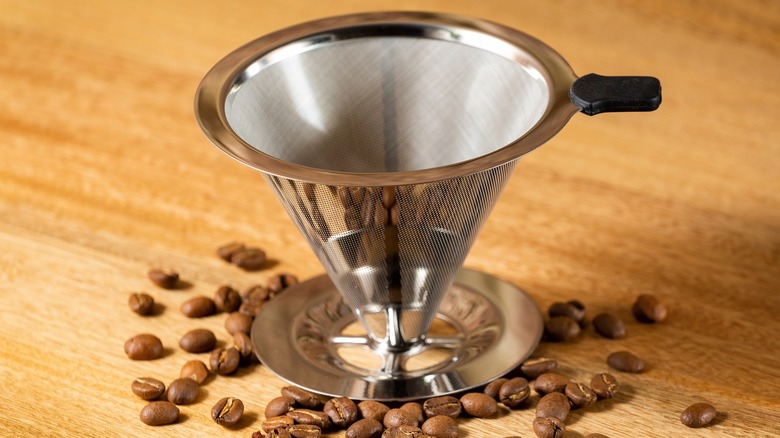Metal Coffee Filters Could Be Preventing You From A Well-Rounded Brew
It's unanimous; coffee is America's favorite drink — even over tap water, according to Food & Beverage Insider. While three-quarters of the American population can agree on that, surveys from YouGovAmerica demonstrate how they take their coffee is an entirely different conversation. There are Arabica bean drinkers and Robusta drinkers. Some people prefer to drink it black, and those who like it with varying amounts of milk, sweeteners, or creamers mixed in. While younger coffee drinkers tend to like iced coffee, people above the age of 45 prefer their coffee hot; and the debates don't end there.
Around the world, coffee is boiled, pressed, steeped, and pressurized in many ways, but according to Coffee Affection, drip coffee is easily the most popular style in America. You'll find drip coffee machines in homes and offices across the country that all work the same way: boiling water in a reservoir, flowing it over ground coffee beans, and extracting the coffee's flavor by passing it through a filter as it drips into a carafe below (via Coffee Grind Guru). But even the topic of drip coffee has its controversies, so one must ask — are you a metal or paper coffee filter person?
At the end of the day, each has pros and cons, but if you're a loud and proud coffee snob, the filter material you choose could be the ultimate decision that makes or breaks your cup.
Pros and cons of metal coffee filters
Metal coffee filters are great for many reasons, the obvious one being that they are much less wasteful than paper filters. Depending on how much coffee you drink, you can easily use multiple paper coffee filters in one day. This, of course, factors into how much you spend on them, a number that CNET averages out to between $18 to $37 a year. A metal coffee filter, on the other hand, could cost you anywhere from $5 to $60, the difference being that just one of those filters could last you up to seven years.
Besides requiring more effort to clean, a big con of metal coffee filters is that they produce a different-looking and tasting cup of coffee. This is because metal coffee filters aren't quite as fine as paper ones, so more of the coffee bean's oils and sediments seep through them and into your pot. Not only do the sediments produce a darker, more cloudy-looking cup of coffee, but they can also alter its flavor. The flavor difference is changed by the coffee bean's oils, which oxidate over time — making your first sip taste much more robust than your last.
However, if you're a coffee snob that is also conscious of the environmental consequences of its consumption, the good news is that most paper filters are biodegradable (via Lomi). Otherwise, you may want to consider going the bean-free coffee route.

